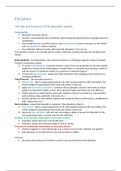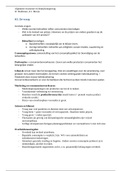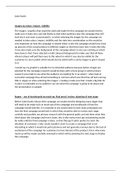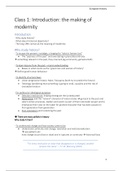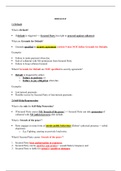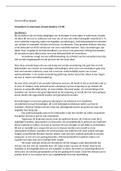Summary
Summary AQA A-Level Sociology Education with Methods in Context (Paper 1)
- Course
- Institution
These notes explore Education with Methods in Context, which is assessed at AS and A Level. They have been structured with the help of the actual exam specification provided by AQA, ensuring that everything has been covered. Other topics are available to download including Families and Households, ...
[Show more]
